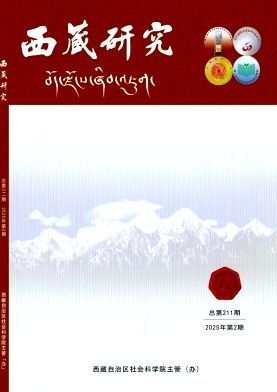| 86 | 0 | 6 |
| 下载次数 | 被引频次 | 阅读次数 |
西藏农牧民家庭代际“债权”关系建立在血缘和亲情关系基础之上,主要包括货币债权和资产债权两类,不限于父母和子女之间的债务债权关系,也包含家庭内部三代以内的叔侄之间和舅甥之间的债权债务关系。根据西藏农牧民家庭调查数据,结合代际“债权”关系问卷调查和实地走访分析结果,可知西藏农牧民家庭中有80.82%的家庭名义上存在代际“债权”关系,通过修正后实际只有23.29%的家庭存在代际“债权”关系,且代际“债权”关系呈现出易变性、无偿性和不平衡性特点。由于不平衡的代际交换模式,构成了子辈对父辈的啃食性关系,但大多数西藏农牧民家庭代际“债权”关系的存在,并没有引起代际之间关系的紧张。
Abstract:The intergenerational “creditor's rights” of farmers and herdsmen in Tibet established on the foundation of blood relationship and kinship,mainly includes two types of monetary and asset creditor's rights. These not limited to the debt and creditor 's rights relationship between parents and their children,also includes three generations within the family such as the debts and creditor's right between nephew and uncle. According to the data survey of intergenerational “creditor's rights” of farmers and herdsmen in Tibet,it could be found that,intergenerational creditor's rights relationship nominallyexists in 80. 82 percent of these families,but 23. 23 percent of these families the intergenerational “creditor's rights” relationship actually exist. The intergenerational “creditor's rights” relationship demonstrates the features of variability,gratuitousness and disequilibrium. Due to the unbalanced intergenerational exchange pattern,the children live off their parents. However,the existence of intergenerational “creditor's rights” relationships in most Tibetan farmers and herdsmen families has not caused tension between generations.
[1]新华社.中共中央国务院关于做好2022年全面推进乡村振兴重点工作的意见[EB/OL].(2022-02-22)[2022-02-27]. http://www. gov. cn/zhengce/2022-02/22/content_5675035. htm.
[2]黄彦彦,郭克莎.家庭负债与恩格尔系数分化——来自中国家庭追踪调查(CFPS)的证据[J].经济学动态,2021(11).
[3]沈兆林.家庭债务异质性对居民消费的影响[J].统计与决策,2021(22).
[4]Berisha,Meszaros,Olson. Income inequality and household debt:a cointegration test[J]. Applied Economics Letters,2015(18).
[5]Edmond Berisha and John Meszaros. Household Debt,Consumption,and Income Inequality[J]. International Economic Journal,2018(2).
[6]Robert H. Scott and Steven Pressman. Inadequate Household Deleveraging:Income,Debt,and Social Provisioning[J]. Journal of Economic Issues,2015(2).
[7]Daesun Jung and Young Sik Kim. Income volatility,household leverage,and consumption in Korea[J]. Japan&The World Economy,2020(C).
[8]周利,王聪.家庭债务与居民消费——来自家庭微观调查数据的证据[J].软科学,2018(3).
[9]宋明月,臧旭恒.异质性消费者、家庭债务与消费支出[J].经济学动态,2020(6).
[10]何光辉,杜威,杨咸月.中国城、乡家庭负债决策差异研究——兼析父辈因素的影响[J].世界经济文汇,2021(6).
[11]宋健,戚晶晶.“啃老”:事实还是偏见——基于中国4城市青年调查数据的实证分析[J].人口与发展,2011(5).
[12]王跃生.中国家庭代际关系的理论分析[J].人口研究,2008(4).
[13]贺雪峰.农村代际关系论:兼论代际关系的价值基础[J].社会科学研究,2009(5).
[14]张婷婷.社会转型与乡村代际关系研究:基于文献的述评[J].中国农业大学学报(社会科学版),2011(3).
(1)平滑跨期消费是指为了缓解家庭面临的流动性约束,减轻低收入带来的流动性不足,于是借贷自己的下一期资金来减轻当期的消费压力,从而改善家庭长期福利。
(1)成年子辈包括子女辈及甥侄辈。
(1)根据问卷中不同问题之间的联系,探讨问卷调查数据的合理性,考虑到调查的子辈年龄集中在18-26岁以及西藏农牧民家庭收入状况,将子辈的借钱用途与偿还方式相匹配,探讨问卷调查数据合理性。
(2)修正统计分析结果,使结论更合理。
(1)偿还比例有差异是因为子辈和父辈两位受访者之间可能并未发生借款行为,而是分别与家庭内其他成员发生过借款行为。
基本信息:
DOI:
中图分类号:F323.8
引用信息:
[1]杨阿维,王卓越.西藏农牧民家庭代际“债权”关系研究[J].西藏研究,2022,No.195(04):141-148.
基金信息:
西藏大学2021年度校级培育计划项目“西藏农牧民家庭代际‘债权’关系研究”(项目编号:ZDTSJH21-11); 2022年度西藏大学青年博士学术发展支持项目“西藏乡村重构转型与数字化建设研究”(项目编号:ZDBS202229)阶段性成果
